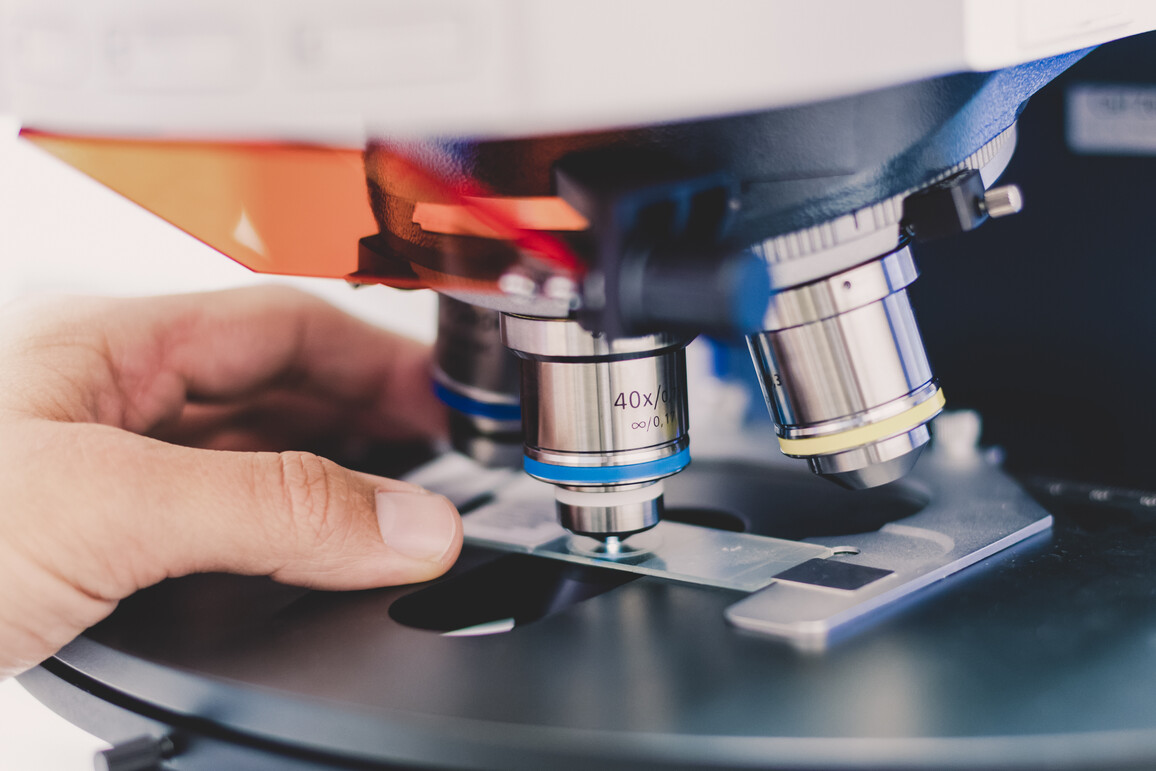Lens-free lab-on-chip fluorescence microscopy by integrating novel polariton filters : Date:
University of Cologne – Dr. Andreas Mischok
conceptual period
Recipient: University of Cologne
Funding: GO-Bio initial (01/10/2022 to 30/09/2023, EUR 119,605.20)
Conventional fluorescence microscopy enables the identification of cells, their components and biological processes. However, the complex microscopy setup and objectives are space-intensive and cost-intensive.
The aim of the FluoPolar project is to develop an ultra-compact, high-resolution alternative to conventional fluorescence microscopy in the form of a lens-free fluorescence microscope. Innovative angle-independent thin-film colour filters are integrated on a camera chip. The filters rely on a new principle of interference optics (light-matter coupling), whereby biological samples can be examined in direct contact with the camera chip – without signal loss, but with significantly improved resolution and a large field of view. Thanks to simple and cost-efficient production in a laboratory-on-chip format, the lens-free fluorescence microscope can be used as a miniaturised component in near-patient laboratory diagnostics, high-throughput screening and microscopy on living organisms.
In the exploratory phase the chances of transferring the promising technology into practical application and thereby, ultimately, into commercial use are to be explored. For this purpose the market situation is being analysed, technical challenges are being defined and potential partners are being identified. As a result of the project, prioritised exploitation options are to be developed. An additional implementation strategy for market entry is to be designed.
feasibility stage
Recipient: University of Cologne
Funding: GO-Bio initial feasibility phase 3 (01/10/2023 to 30/09/2025, EUR 575,020.22)
Fluorescence microscopy is an indispensable part of modern biotechnology research, as it makes it possible to identify cells and elucidate their components and biological processes. However, their use requires complex and large microscopy setups and objectives with special optical requirements. These are cost-intensive and limited to specialised research in laboratory environments.
The project uses a newly discovered principle of interference optics to develop an ultra-compact, high-resolution alternative to traditional fluorescence microscopy. Thin-film colour filters are used, which are independent of the angle of incidence of the light, in order to process the light signal directly on the camera chip without the use of a lens. Advantages are lossless detection of the signal, high resolution and readout speed. The resulting ‘lab-on-a-chip’ offers a wide range of application perspectives in biotechnology and medical technology. The simple and cost-efficient production of the fluorescence microscopes allows them to be used as miniaturised components. Point-of-care diagnostics, biological research, but also high-throughput screening methods are particularly suitable for this application. During the feasibility phase a laboratory prototype will be developed, a further market analysis and a further FTO analysis will be carried out and an industry network will be established.
